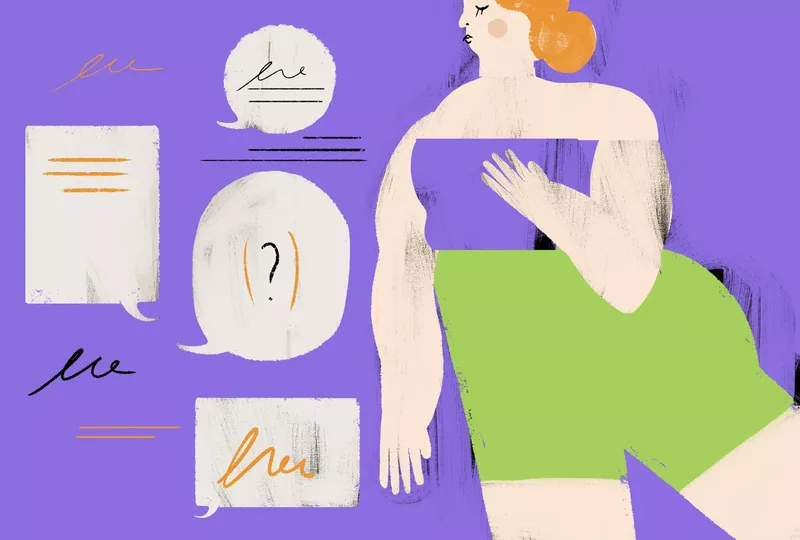In today's relentless world, finding moments of calm and clarity can feel like a luxury. Yet, what if a simple, ancient practice held the key to transforming your inner landscape? Meditation profoundly impacts your mind and body, offering a powerful pathway to enhanced well-being and resilience.
This deliberate technique, practiced globally for millennia, is more than just relaxation; it’s a conscious shift towards heightened awareness and focused attention, fundamentally altering how you perceive and respond to life's challenges. Routinova explores how it can revolutionize your daily experience.
Meditation is a conscious journey that reconfigures your brain, strengthens emotional regulation, and deepens your connection to the present moment, proving its undeniable impact on mind and body.
What is Meditation and Its Core Types?
Meditation is defined as a set of techniques intended to encourage a heightened state of awareness and focused attention. It's a consciousness-changing practice shown to have many benefits on psychological well-being (Harvard, 2024).
There are two primary categories of meditation, alongside several specific techniques:
- Concentrative Meditation: This involves focusing intensely on a specific object, such as your breath, a word, or a mantra, while actively tuning out all other distractions. The goal is to achieve a higher state of being by immersing yourself in the chosen focus.
- Mindfulness Meditation: This practice cultivates present-moment awareness, encouraging you to observe thoughts, feelings, and sensations without judgment. It encompasses popular approaches like Mindfulness-Based Stress Reduction (MBSR), adapting its focus to address issues like stress or depression.
Specific Meditation Approaches
- Body-Scan Meditation: Involves systematically bringing attention to different areas of the body, noticing physical sensations without judgment.
- Loving-Kindness Meditation: Focuses on cultivating feelings of warmth, compassion, and kindness towards oneself, loved ones, and all beings.
- Movement Meditation: Integrates focused attention with physical activity, whether through gentle movements of specific body parts or observing the environment during a mindful walk.
How Does Regular Meditation Impact Your Brain?
Regular meditation practices demonstrably alter brain structure and function, showcasing its profound influence. Stanford researchers have observed increased gray matter density in the hippocampus, vital for memory and emotional regulation, alongside reduced volume in the amygdala, the brain's fear center. This recalibration is key to how meditation impacts mind functions like stress response.
This neuroplasticity suggests meditation isn't just a mental exercise but a powerful tool for rewiring the brain for greater calm, improved cognitive function, and enhanced emotional resilience. It fosters increased brain connectivity, boosting overall brain health.
What Are the Transformative Benefits of Meditation?
Embracing meditation offers a wide array of psychological, emotional, and physical advantages, fundamentally improving daily life:
- Reduced Stress & Anxiety: Meditation significantly lowers physiological arousal, decreasing heart rate and improving stress management skills. This direct effect on the body helps the mind achieve a calmer, more controlled state.
- Enhanced Emotional Well-being: By fostering self-awareness and emotional regulation, meditation helps individuals navigate difficult feelings more effectively. This deepens the positive meditation impacts mind experience, leading to greater inner peace.
- Improved Focus & Memory: Consistent practice has been linked to better working memory, fluid intelligence, and sustained attention. Imagine tackling complex tasks with renewed mental clarity and productivity.
- Greater Empathy & Connection: Practices like loving-kindness meditation cultivate compassion, extending benefits beyond individual well-being to interpersonal relationships and fostering a sense of connection.
- Better Sleep Quality: By calming the nervous system and reducing mental chatter, meditation can alleviate symptoms of sleep disorders, promoting more restful and restorative nights.
Practical Steps to Begin Your Meditation Journey
Starting a meditation practice doesn't require complex rituals; simplicity and consistency are key. Here’s a beginner-friendly guide:
- Find Your Sanctuary: Choose a quiet, distraction-free space where you won't be interrupted. Even 5-10 minutes daily in a peaceful corner can initiate profound changes.
- Set a Realistic Time: Begin with short sessions, perhaps 5 to 10 minutes, and gradually extend the duration as your comfort grows. Consistency is more crucial than the length of each session.
- Comfortable Posture: Whether seated cross-legged on the floor or comfortably in a chair, ensure your body is at ease. The goal is sustained comfort, not rigid adherence to a specific pose.
- Anchor to Your Breath: Gently focus on the sensation of your breath as it enters and leaves your body. Notice the rise and fall of your belly, allowing it to be your primary point of attention.
- Observe, Don't Judge: Your mind will inevitably wander; this is a natural part of the process. Acknowledge any thoughts or feelings without judgment, then gently redirect your focus back to your breath. This non-judgmental awareness is central to how meditation impacts mind clarity and peace.
Are There Any Potential Pitfalls to Be Aware Of?
While meditation offers immense benefits, it's crucial to approach it with realistic expectations. It's a tool for self-care and personal growth, not a magic cure-all for all life's problems.
Some individuals, particularly those with existing mental health conditions, might experience challenging emotions or even an exacerbation of symptoms (Harvard, 2024). It's important to be mindful of your own experience.
Key Considerations:
- Manage Expectations: Significant progress takes time and consistent practice; immediate profound shifts are uncommon. Treat it as a long-term habit.
- Seek Guidance: If you have severe anxiety, depression, or conditions like schizophrenia, consult a healthcare professional before starting. Meditation might not be suitable for everyone and could trigger difficult states in vulnerable individuals (Stanford researchers).
- Listen to Your Body & Mind: If a practice consistently feels distressing or overwhelming, it's perfectly acceptable to pause, adjust your approach, or seek professional advice.
A Brief Look at Meditation's Enduring Legacy
Though its surge in Western popularity is recent, meditation boasts a rich history spanning thousands of years, deeply interwoven with diverse religious and spiritual traditions across Asia. Today, it transcends these origins, embraced globally as a secular path to well-being, integrated into therapeutic modalities like Mindfulness-Based Stress Reduction (MBSR) and personal development programs. Its evolution underscores its universal applicability and continued relevance in our fast-paced modern life.
Embracing meditation is an investment in your mental and physical health. By dedicating even a few minutes daily, you cultivate a profound inner resource, enhancing your ability to navigate life with greater calm, clarity, and compassion. The way meditation impacts mind functions is truly transformative, offering a pathway to a more centered self.
Action Step: Commit to a 5-minute guided meditation session today. Many free apps and online resources can help you begin this rewarding journey.












